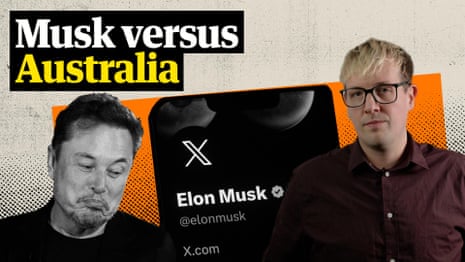Limiting kids from social media might threat limiting their entry to essential social assist and will end in them accessing social media in secret, Australia’s on-line security regulator has warned.
The opposition chief, Peter Dutton, this month mentioned the Coalition would ban beneath 16s from social media inside 100 days ought to they win the following election. The Albanese authorities is enterprise a $6.5m trial of age assurance expertise and is assessing at what age kids ought to be capable of entry social media as a part of a wide-ranging parliamentary inquiry on social media and Australian society.
In its submission to the inquiry, the eSafety commissioner’s workplace mentioned that whereas 45% of younger folks aged 14 to 17 reported being handled in a hurtful or nasty approach on-line, and social media can have acute dangers to kids similar to on-line grooming and sexual extortion, dialogue concerning the dangers of social media wanted to be balanced with dialogue of the advantages.
“Social media may also provide a range of opportunities that are protective of mental health, such as inclusion, social connection and belonging,” the commissioner mentioned.
The dialogue about stopping kids from accessing social media by age verification “implies social media is a discrete form of media that can be separated from the rest of the internet and modern media”.
“Even if social media could be demarcated and separated from other media, a primary concern is that children would migrate to other services and platforms with fewer safeguards.”
The eSafety commissioner mentioned limiting younger folks from social media “may limit young people’s access to critical support” and a few would in all probability work across the blocks.
after e-newsletter promotion
“If age-based restrictions are imposed, eSafety has concerns that some young people will access social media in secrecy. This may mean that they access social media without adequate protections in place and are more likely to use less regulated non-mainstream services that increase their likelihood of exposure to serious risks.”
Banning kids of a sure age would additionally not assist kids construct capability to have interaction safely on-line, and shouldn’t be thought of the only real answer, eSafety mentioned.
The Coalition has not outlined how age checks for social media would work in observe, and eSafety mentioned within the submission that age assurance is “not a panacea for online harms” and training and awareness-raising actions should even be included.
Guardian Australia reported final week that the UK regulator – which is now rolling out age assurance measures for over 18s – warned that facial recognition expertise for age assurance doesn’t work properly on youthful teenagers.
The eSafety commissioner, Julie Inman Grant, instructed the committee in a listening to on Friday that the expertise had improved in “leaps and bounds” up to now few years however it will depend upon how the expertise could be designed and deployed as as to if it will achieve success.
The committee is scheduled maintain two hearings this week, and one subsequent week.




